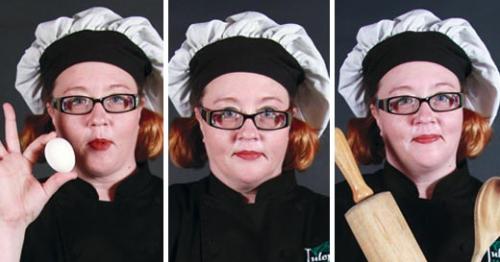Sometimes perception is reality. If a group of diners comes into your restaurant and has to wait a bit longer to be seated than they’d like, they will often naturally exaggerate that wait time when they relate the experience to other people. Their “45-minute” wait for a table might in reality have been 20 minutes, but they will still stick to that 45-minute testimony. Once things have gone this far astray, all bets are off.
“Nobody asked for our drink orders until 20 minutes after we were seated.” Unlikely. But if it seems to them like they waited 45 minutes for a table and 20 minutes after that to have their drink orders taken, this is what they will tell everyone — and anyone — who will listen.
You and I have felt this way before. Sometimes the wait to be seated can seem so long, time becomes malleable. And then, after waiting for what feels like an eternity, one feels justified to expect extra-snappy service thereafter. If that doesn’t happen, a lot of social media things can come into play.
“Waiting so long!” posted on Facebook. “Here is a photo of my table with no cocktail on it” on Instagram. I try to avoid uploading these thoughts at all costs. But when you’re bored and hungry, it can be a mighty difficult thing to resist.
An interesting thing happened this week, though. A lady, an occasional patron (she said she’d eaten there three times in five years) of a certain popular Irish eatery in town, posted a semi-rant on LouisvilleHotBytes, a popular local foodie Internet community.
Her family was celebrating a birthday at said restaurant while at the same time mourning the recent passing of a young family member. She said a relative’s steak was burned. She claimed her mussels were overcooked and “tasted so awful it literally felt like poison had gushed into my mouth.”
Nearly every restaurant in existence has sent out an overcooked dish from time to time. (I’d be fascinated to hear the claims of any restaurant who says they never have.) In a decently run, professional restaurant, this situation is usually dealt with via an apology from the server or manager, a quick-as-possible replacement dish and/or some sort of compensation — perhaps a discount, a free entree or an offer of free dessert.
But this story went far beyond the normal “Sorry, can I replace that for you with a re-cook or something else?” This patron reported that she spit out the offending food, spoke to the server about it and was then informed that the owner was “out of sorts” about her complaint. She claimed the owner then accosted her at the table, called her a liar and threatened to have her arrested. According to her, he then followed her from the building, calling her names.
Here’s where it gets really interesting. According to the complaining patron: “This is the worst restaurant I have ever been to in my life. I have no idea why people eat here. Every dish I have ever ordered has been horrible, and now I have been assaulted for not liking rotten food.”
And then a beautiful thing happened.
Literally dozens of people — both on the HotBytes forum and the restaurant’s Facebook page — jumped to defend the restaurant. A HotBytes reader who was in the restaurant during the incident in question even posted a counter-account. Nearly every person replying flew to the owner’s defense. The people who claimed to have witnessed the altercation did the same.
So: What really happened here? Perception versus reality.
This customer was understandably in an emotional state, given the recent passing of a family member. She simply wasn’t ready or able to have an enjoyable time. Then the perceived slight of being served substandard fare put her over the edge.
What happened after that is sort of anyone’s guess, but on the other hand we do have the eyewitness accounts of third parties who were likely impartial, and a whole raft of character references in evidence from present and longtime patrons of the restaurant.
I would only ask patrons to remember to consider your own level of openness to having a positive experience when you dine out. Ask yourself if your mood, circumstances or expectations could be affecting your perception before you decide you’re having a bad time and it’s someone else’s fault.
And if you do have a genuinely negative experience, speak to a manager, be as civil as possible, and remember — everyone makes mistakes, and most mistakes can be forgiven.
Marsha Lynch has worked at many Louisville independent restaurants including Limestone, Jack Fry’s, Jarfi’s, L&N Wine Bar and Bistro, and Cafe Lou Lou.


